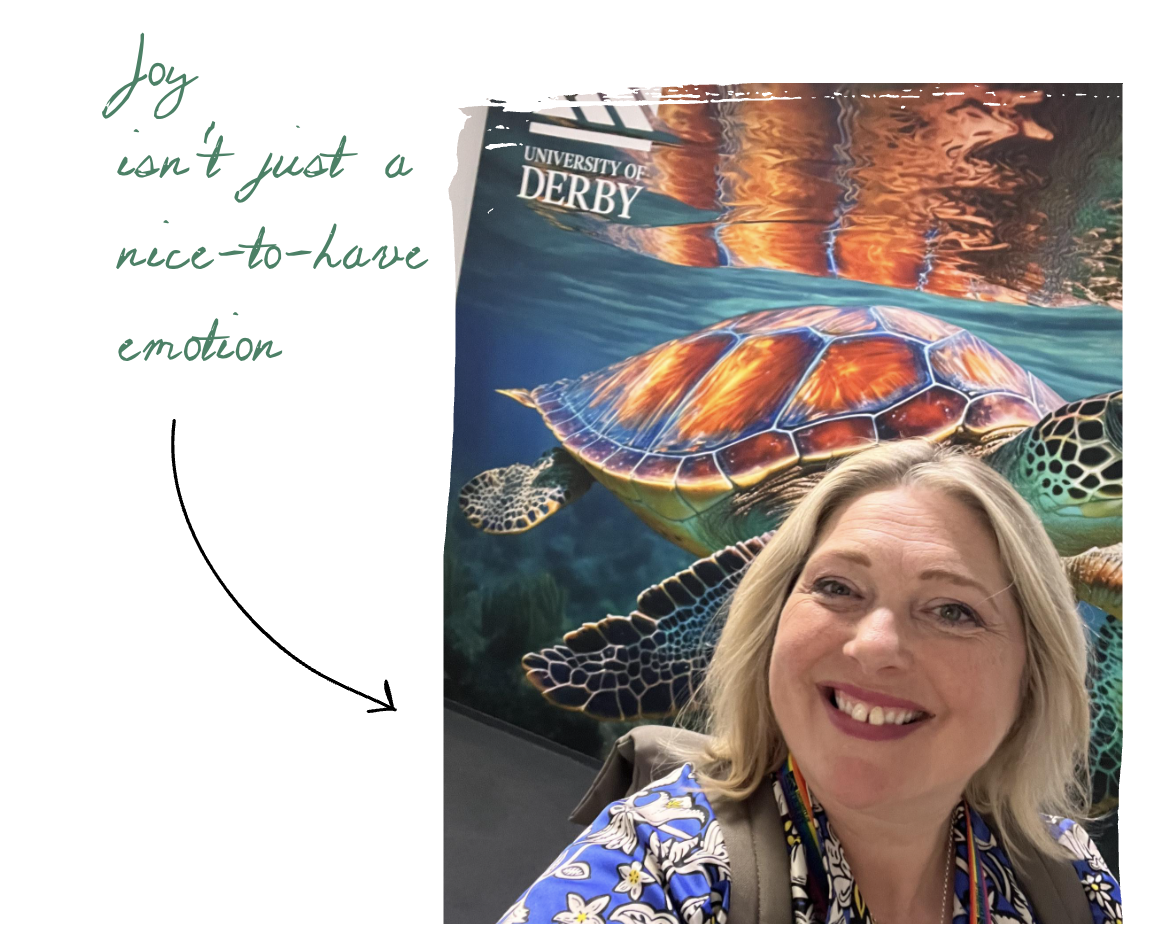Joy isn’t just a nice to have emotion.
Image of Leila in front of a giant image of a turtle at the University of Derby
This is what I do when I'm coming to the end of something significant in my life…
I'm a serial contractor and freelancer, and the one thing I've learned is to squeeze joy out of every ending. It was my last contracted day at the University of Derby last week, here I am feeling joy as I took a snap in front of the famous Derby Turtle. I feel incredibly lucky to have worked with some amazing folk over the last few year years, and there are some exciting collabs on the horizon.
Joy is much more than a nice-to-have emotion, it’s a process that helps regulate us, shape our direction, and build a coherent sense of who we are.
Psychologically speaking, we make sense of our lives using temporal moments, this means your beginnings and endings are the memories that live rent free in your head when you make comprisions about how things were, and where you are now, compared to an earlier version of yourself.
Whilst we can't control every beginning and ending, we can practice mindfulness and noticing pockets of joy.
The turtle in the footwell of the stairs always brought me joy. So I took a photo, and created a temporal moment!
This week's prompt is this, where are you using Joy as the strategic powerhouse that it is?
NEW research
Psychologists have found that people who think long-term don’t just delay gratification, they’re more likely to choose activities that feel meaningful, even when they’re not the most instantly fun. It’s not about saying no to joy. It’s about saying yes to what lasts.
Why this matters:
1. It reframes your instincts as strengths.
If you often find yourself turning down trends, skipping hacks, or choosing the harder but more purposeful route, this isn’t hesitation or being behind. It’s a sign of long-term orientation, and psychology backs it as a meaningful, future-focused strategy.
2. It helps explain your creative tension.
That pull between doing what matters and doing what performs? This research says it’s not just you. People wired to care about meaning often struggle with quick-turn, surface-level outputs. And that tension can be navigated, with clarity.
3. It validates slower seasons.
If you’re investing in something that takes time, a book, a community, a business , you’re not ‘off-track.’ You’re doing what future-focused thinkers are wired to do: choose what feels good later, not just now.
4. It justifies getting insight before action.
This research supports a slower, more thoughtful pace. Which is exactly what my service Psych Insight offers; a pause to make meaningful decisions, rather than reactive ones
“Mapping of Meaning and Pleasure on the Temporal Horizon: Long‑Term Orientation Predicts Preference for Meaningful Over Pleasurable Activities”, by Hong, Kim & Choi, published January 9, 2025 in the European Journal of Social Psychology
